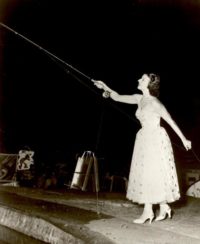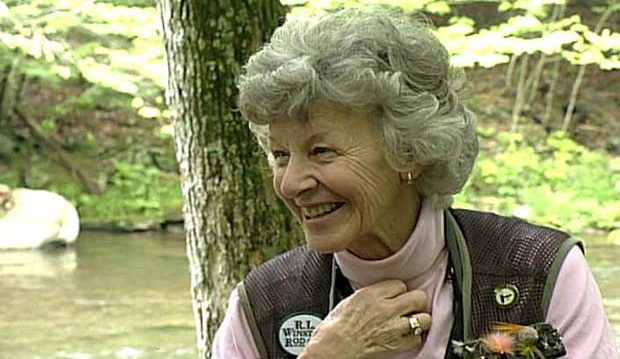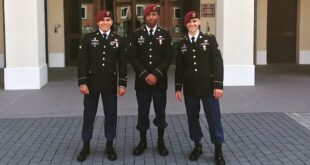A fly fisher for more than eight decades, she literally helped define the sport while opening the door for other women to enter it.
Ninety-one-year-old Joan Salvato Wulff, the “First Lady of Fly Fishing,” says that even after all these decades, she never fails to feel a jolt of life every time she casts into the water.
“Fly fishing puts you in touch with the natural world,” she says. “Everything we do is in tune with that.”
Salvato Wulff is a proud inductee of both the International Game Fish Association Hall of Fame and the American Casting Association Hall of Fame.
The sport, she explains, requires quiet, intent observation of your immediate surroundings and an intimate knowledge of water temperature, insect life cycles and fish migration patterns.
“It’s always satisfying to stand in the river and feel the current,” she says. “It’s renewing.”
Salvato Wulff learned the sport as a little girl from her father, and won 17 national casting titles from 1943 to 1960, when she stopped competing.
She is the author of four books — the latest being “Joan Wulff’s New Fly-Casting Techniques,” published in 2012 — and is a retired trustee for the International Game Fish Association and the Atlantic Salmon Federation.
She made a name for herself in 1951 when she cast 131 feet against all-male competition and became the first woman to win the Fisherman’s Distance Event.
Her claim to fame came nine years later, though, when she cast a 161-foot fly, again as the only woman in the tournament. Ironically, her feat couldn’t be counted as a record because for that to happen, there had to be five other women in the event, she explains.
“Now that I am 91, I can say that finally there are lots of women coming into the fly fishing world,” she says.
She credits that trend to the 1992 film “A River Runs Through It.” Directed by Robert Redford, it tells the story of two brothers in rural Montana who are united by their passion for fly fishing.
The movie sparked a boom in women who wanted to attend Wulff School of Fly Fishing, which she had opened in 1978 in New York’s Catskills with her late husband, Lee Wulff. She is now married to attorney Ted Rogowski.
 Salvato Wulff was a pioneer in the sport because she not only mastered its mechanics but actually named them.
Salvato Wulff was a pioneer in the sport because she not only mastered its mechanics but actually named them.
“Before, to teach they would say, ‘Watch me do this,’” she says. “You wouldn’t talk about what your hand did, or what you did with your arm, or the timing.”
Her personality is to be a teacher, she says. “I can’t walk past somebody who is casting badly without going to them and asking them if I can help them.”
While she doesn’t run her school or give lectures anymore, she happily joins students when they go outdoors. “I can’t give that up,” she says. “The idea of teaching is that your reward comes in the light in the student’s eye, or their better execution of a cast.”
Anyone can become a good fly fisherman, but they have to enjoy nature and be able to withstand the elements, she says.
The most difficult fish to catch, in her estimation, is the permit, a saltwater fish that has been particularly elusive for her.
“When I see a permit in the water, there is an electricity that comes to my body, and my mind,” she explains. “They will come right up to your fly and just not take it. You can see it. I’ve only caught a couple of 5- and 6-pound permit, and I really want to catch one of 15 pounds. I want to have enough life left in me to do that.”
Then again, she says, she’s also learned to relish the simple act of fishing. And she loves what she calls “fishing through somebody else.”
“If someone else catches a fish and you see it or hear about it, you know exactly how happy they are,” she says, “because you know how it feels yourself.”
The above appeared in the March issue of the print version of Fra Noi. Our gorgeous, monthly magazine contains a veritable feast of news and views, profiles and features, entertainment and culture. To subscribe, click here.
 Fra Noi Embrace Your Inner Italian
Fra Noi Embrace Your Inner Italian







